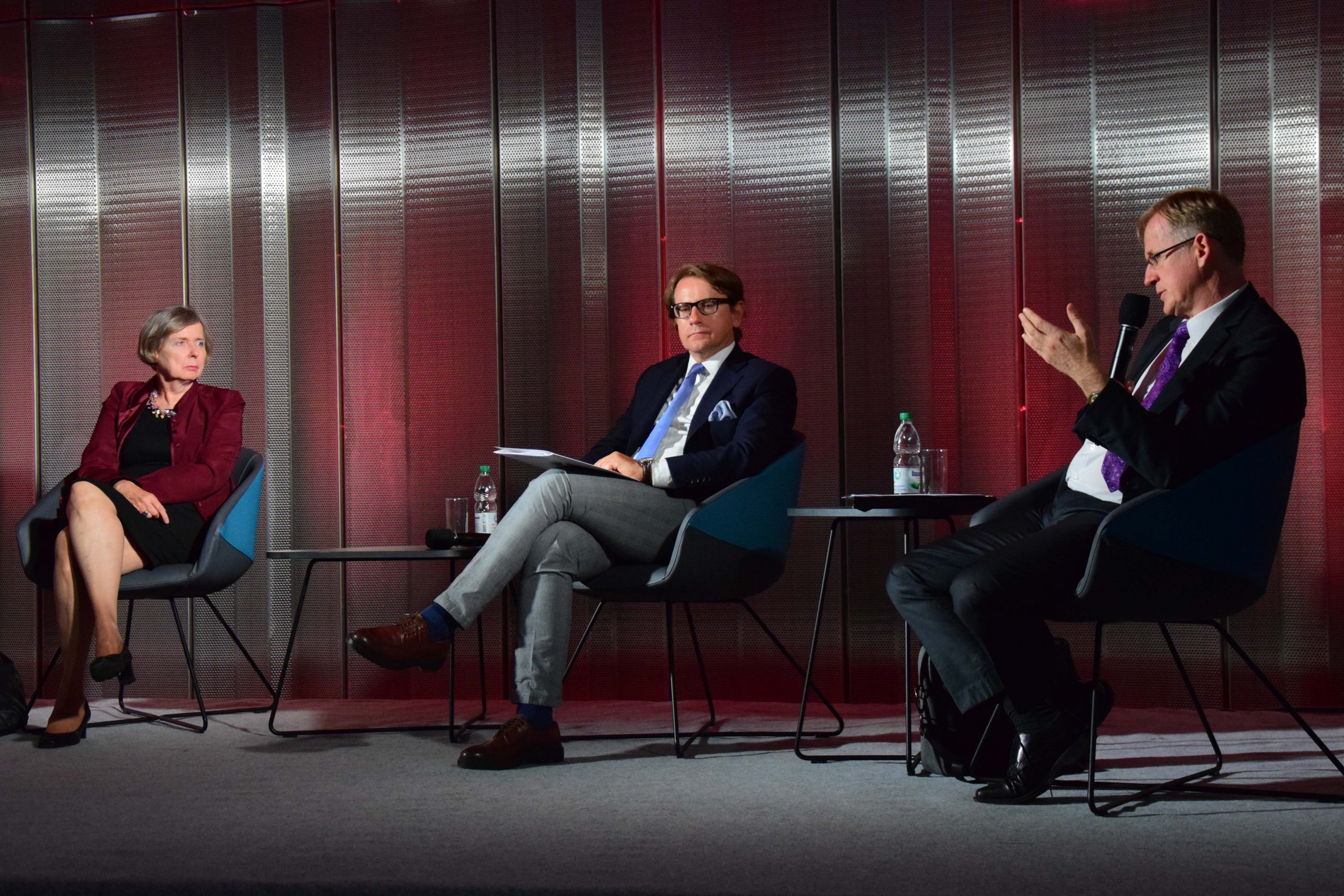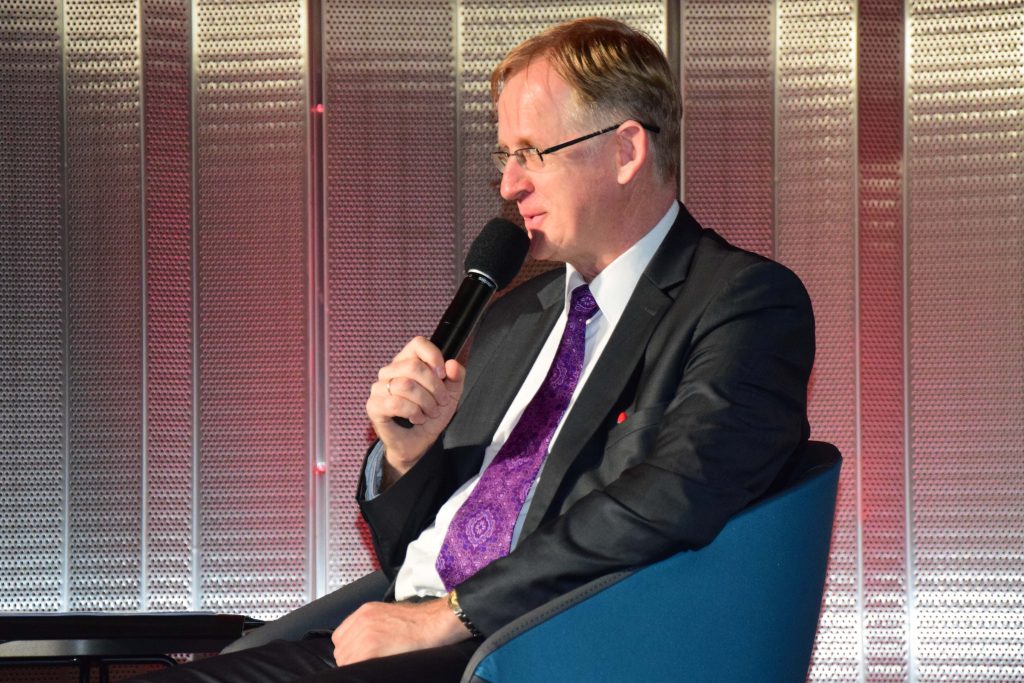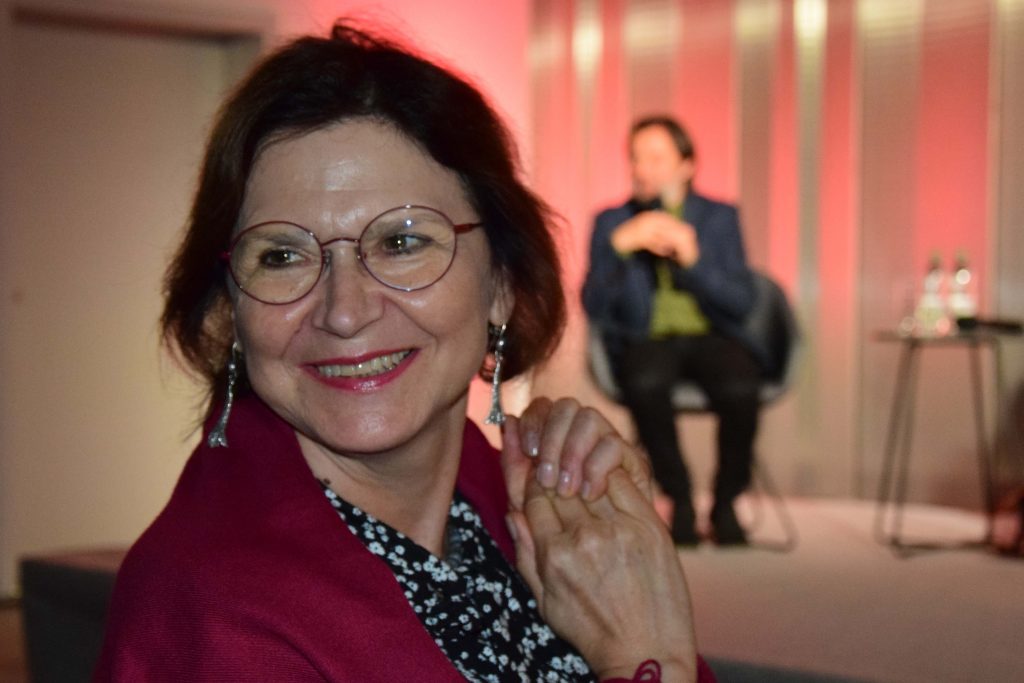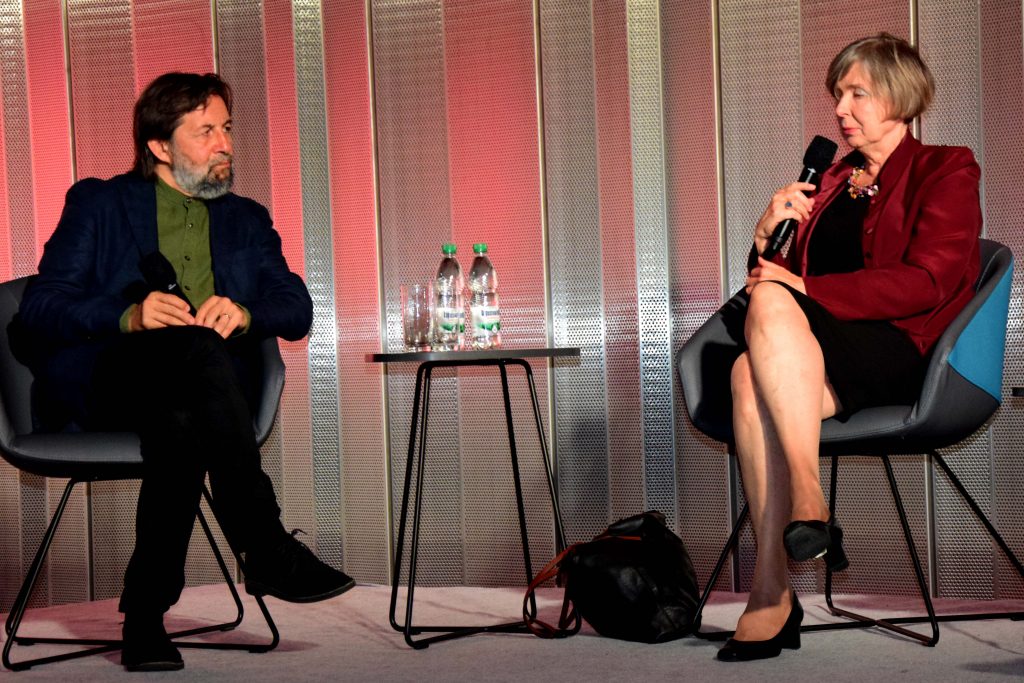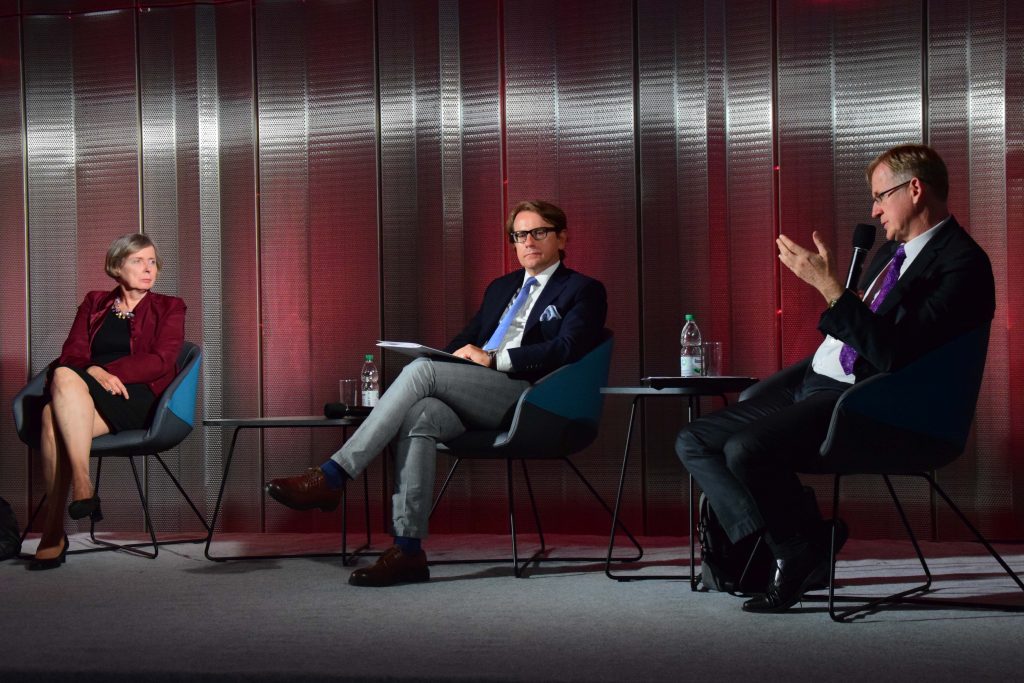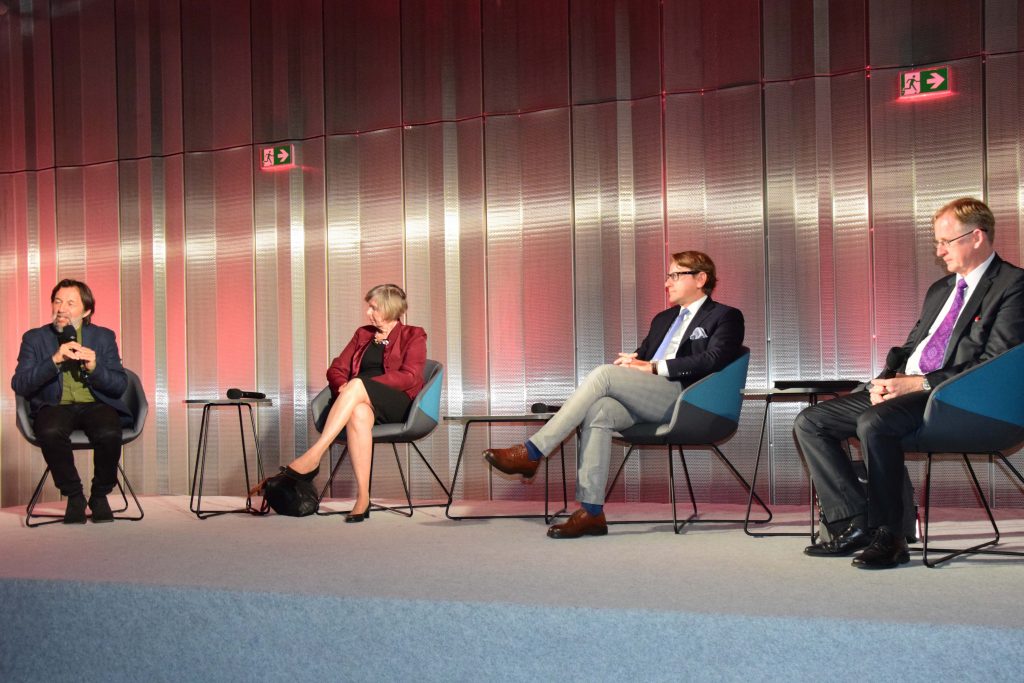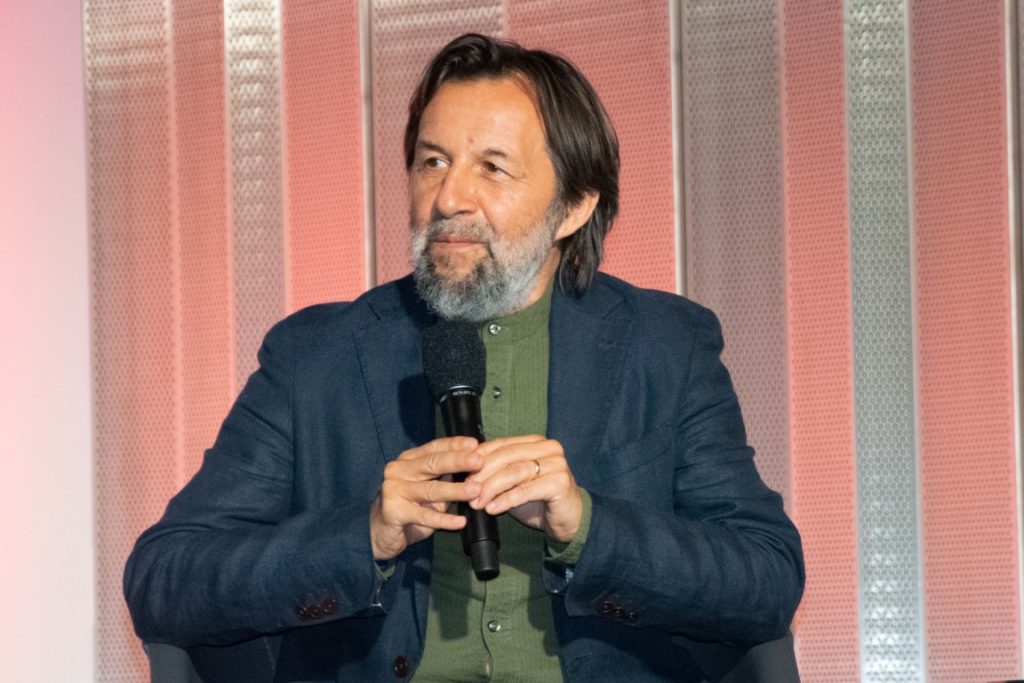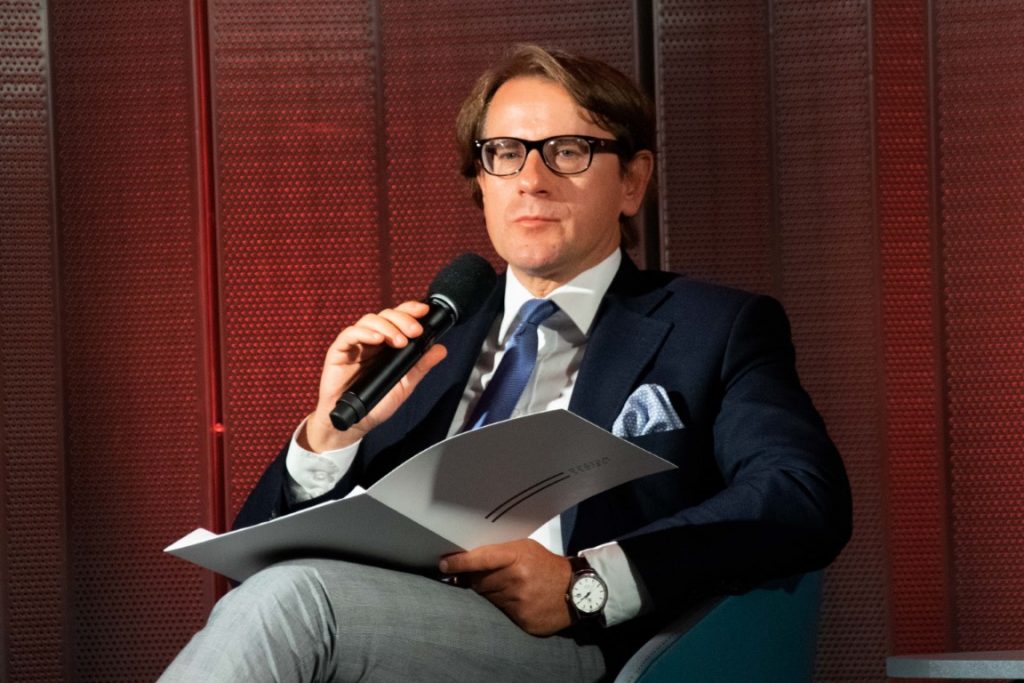Krzysztof Czyżewski,PhD, director of the Centre “Borderland of Arts, Cultures and Nations” in Sejny, Krystyna Jaworska, PhD from the University of Turin, Arunas Bubnys, PhD, director of the Center for the Study of Genocide and Resistance of Lithuanian Residents and Director of the Sybir Memorial Museum, Wojciech Śleszyński, PhD tried to answer the following questions together: how to talk about the Soviet crimes today? How to talk about it with the younger generations? How important is at the same time international cooperation?
Shortly after the war, the witnesses of the soviet crimes felt in the West, as Gustaw Herling-Grudziński and Czesław Miłosz called it, plagued — said Krzysztof Czyżewski, director of the Centre “Borderland of Arts, Cultures and Nations” in Sejny, who led the panel discussion. No one wanted to listen to their experiences their written memoirs were rejected by publishers. They were thought to be dangerous, obsessed with the East — he added.
Krystyna Jaworska, PhD from the University of Turin reminded the publication prepared by the Polish Second Corps of general Anders. — “Sprawiedliwość Sowiecka” (“Soviet Justice”) was the first publication including the maps of labor camps. Translation into French and Italian language has been prepared, but it took its toll. It was the inconvenient truth, because the Soviet Union was at that time an ally and the Polish military press was subject to allied censorship — she explained.
“Inny Świat” (“Another World”) by Grudziński published in the 50s in Italy was not also noticed. When the efforts were made to publish the book in French, it was rejected by publishers. French philosopher Jean Paul Sartre voiced his opinion, that workers, who believe in the communist utopia should not be demoralized. The testimony of the victims of the soviet repressions did not add up, because it “vandalized the communist party’s work” — said the researcher.In Lithuania the creators of the underground publications describing the crimes were taken to Gulag. — said Arunas Bubnys, PhD, director of the Center for the Study of Genocide and Resistance of Lithuanian Residents. For the country the breakthrough was the year 1988, when National Renewal and the Study for Genocide and Resistance of Lithuanian Residents were made. Then, collecting memoirs begun, It was then that the collection of testimonies began without repressions by the authorities, he explained.
In Italy, similarly to Poland — said Jaworska, PhD — such the breakthrough was the year 1989. Paradoxically, “Inny Świat” (“Another World”) by Herling-Grudziński was published by a publisher.
Here come the questions, how to speak about the soviet crimes today? How to talk about it with the young generations? — asked the leader of the panel. The director of the Sybir Memorial Museum, Wojciech Śleszyński, PhD, stressed how important is the role of modern historians: — It is a misfortune, when a historian becomes a prosecutor. It is our task to describe. When we speak about the Polish experience, we are interested in it. Or maybe we should treat communism in the category of universal experience, as universal evil? — he asked.
- The numbers show the mutual pain. In soviet “posiolek” people from different countries met each other. My father stressed, that the first victim of the regime was the Russian nation — stressed Jaworska, PhD.
The director of the museum stressed the role of historians’ cooperation and museum workers from different countries touched by the communism experience: — We perfectly cooperate with the Russian “Memorial”, with the Museum of the Gulag History in Moscow. One of the first exhibitions in our museum was the exposition prepared by the Museum of the Holodomor-Genocide in Kyiv. I cannot imagine our institution functioning in a different way.
The video of the panel discussion can be seen under the link:



